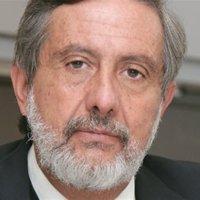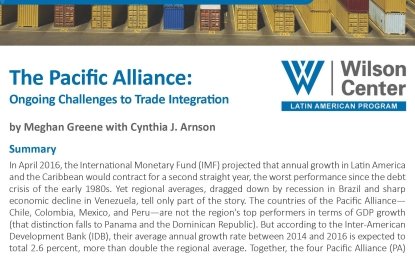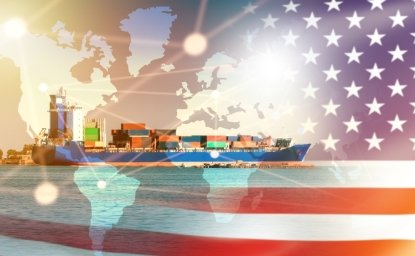In a new study commissioned by the Wilson Center’s Latin American Program and the Inter-American Development Bank, economists Guillermo Perry (Universidad de los Andes) and Diego Auvert (Fedesarrollo) explore the current state of financial integration in the Pacific Alliance (PA) and make recommendations for its deepening.
Perry and Auvert demonstrate that, despite the partial integration of the stock exchanges of the Alliance’s four member countries (Chile, Colombia, Mexico, and Peru), actual operations through the Mercado Integrado Latinoamericano (MILA) remain marginal. The paper lays out the case for why further financial integration—and in particular capital market integration—can provide significant long-term benefits to the PA’s members, especially in the current global and regional environment. It then focuses on the potential for the integration of capital markets within the region and on how a significant push toward regulatory harmonization could contribute to this goal.
The paper offers concrete recommendations for advancing the harmonization of market and tax regulations within the PA over the short, medium, and long term. It emphasizes the need for strong political leadership to articulate and realize a broad and ambitious financial integration agenda.
Authors

Universidad de los Andes, Colombia

Latin America Program
The Wilson Center’s prestigious Latin America Program provides non-partisan expertise to a broad community of decision makers in the United States and Latin America on critical policy issues facing the Hemisphere. The Program provides insightful and actionable research for policymakers, private sector leaders, journalists, and public intellectuals in the United States and Latin America. To bridge the gap between scholarship and policy action, it fosters new inquiry, sponsors high-level public and private meetings among multiple stakeholders, and explores policy options to improve outcomes for citizens throughout the Americas. Drawing on the Wilson Center’s strength as the nation’s key non-partisan policy forum, the Program serves as a trusted source of analysis and a vital point of contact between the worlds of scholarship and action. Read more





